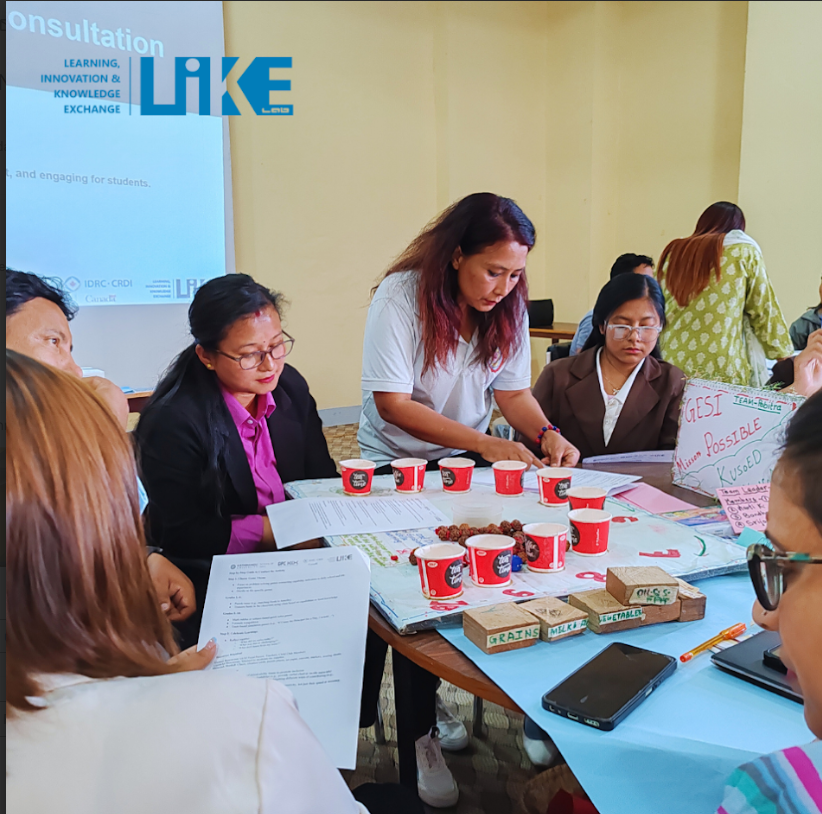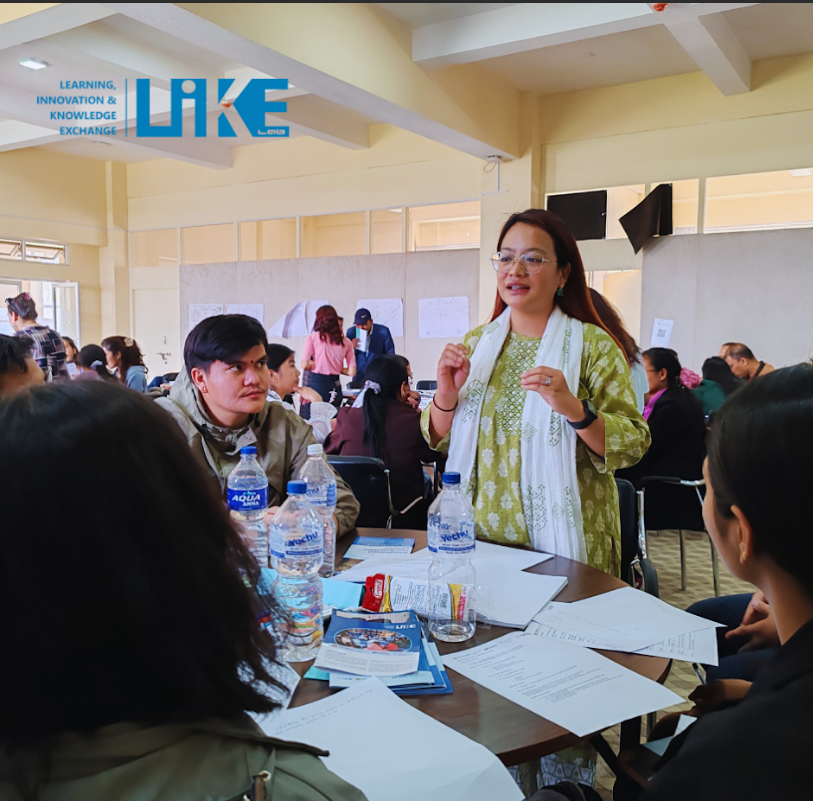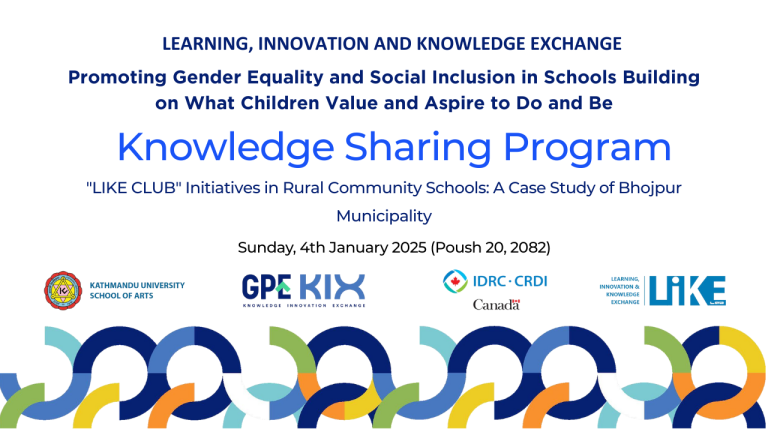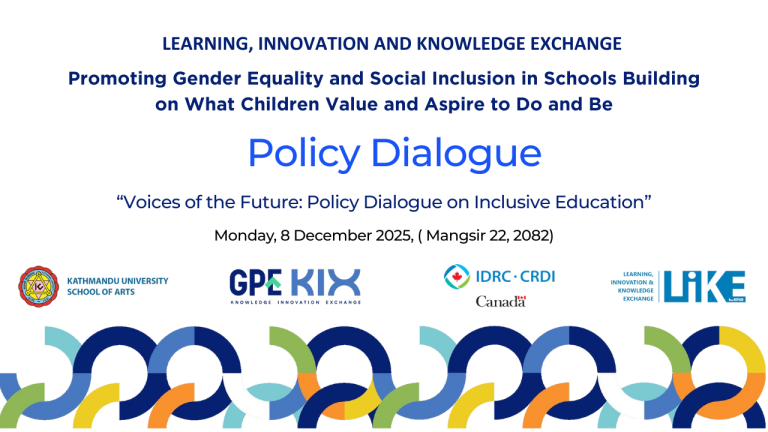
KATHMANDU, NEPAL, APRIL 26th 2025 – A Knowledge Sharing Consultation Event was organized by Learning, Innovation and Knowledge Exchange (LIKE) Lab, Kathmandu University School of Arts in collaboration with Continuing and Professional Education Center (CPEC), Kathmandu University School of Education. The session aimed to review and refine the Activity Book developed under the “Promoting Gender Equality and Social Inclusion in Schools Building on What Children Value and Aspire to Do and Be” (CVEC Project), while fostering innovative ideas to promote child well-being, inclusivity, and transformative education in schools.
The session was facilitated by Ms. Anushka Shrestha, the event welcomed 70 participants, including 54 women and 16 men, reflecting strong engagement and commitment to child-centered educational practices. The session commenced with a welcome address by Ms. Shrestha, who emphasized the importance of collaborative feedback for strengthening the Activity Book. Research Fellow, Ms. Isha Karki presented an overview of the Activity Book, highlighting the role of children’s participation in shaping the intervention through the capability approach. Following this, the participants were divided into six groups, reviewing specific sections of the Activity Book and proposing actionable improvements based on practical experience.
Key Discussion Points and Recommendations:
- Group 1 emphasized breaking gender stereotypes through creative activities like poster-making competitions and linking drawing exercises to advocacy. They recommended initiating debates on gender roles from Class 1 following sensitization sessions.
- Group 2 focused on menstrual health conversations and strengthening mental well-being reflections throughout the week. They proposed involving communities to reduce stigma and promoting social-emotional learning from an early age.
- Group 3 encouraged sensory and non-verbal communication activities, recommending the use of tactile tools like texture walls and parental involvement.
- Group 4 introduced low-cost inclusive activities using local resources, promoting creative thinking over rote learning. They emphasized structuring capability-building activities according to different school levels and adopting gender-neutral language.
- Group 5 advocated for the mandatory implementation of “Wellness Wednesdays,” incorporating mindfulness practices, promoting bodily rights education from Class 1, and introducing cyber safety education from Grade 2.
- Group 6 promoted the operationalization of the Grievance Mechanism Guidelines 2074 by conducting role plays and emphasizing caste equality in schools. They recommended accessible grievance mechanisms to foster inclusivity.
In addition, Dr. Poonam Risal recommended utilizing forum theatre for transformative education, strengthening skill development programs for GESI focal persons, and applying an intersectional and gender justice lens to all initiatives.
The session concluded with remarks from Dr. Binayak Krishna Thapa, the Principal Investigator of the CVEC Project who stressed the importance of prioritizing children’s well-being over narrow outcome measurements. He highlighted that equity and equality must be seen as ongoing processes, not finite goals, and urged participants to leverage local resources to drive transformative educational change. The event reflected a strong collective commitment to reimagining education through child-centered, inclusive, and transformative approaches.





